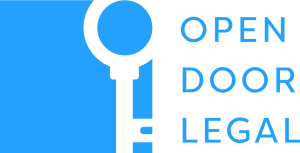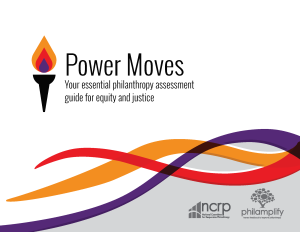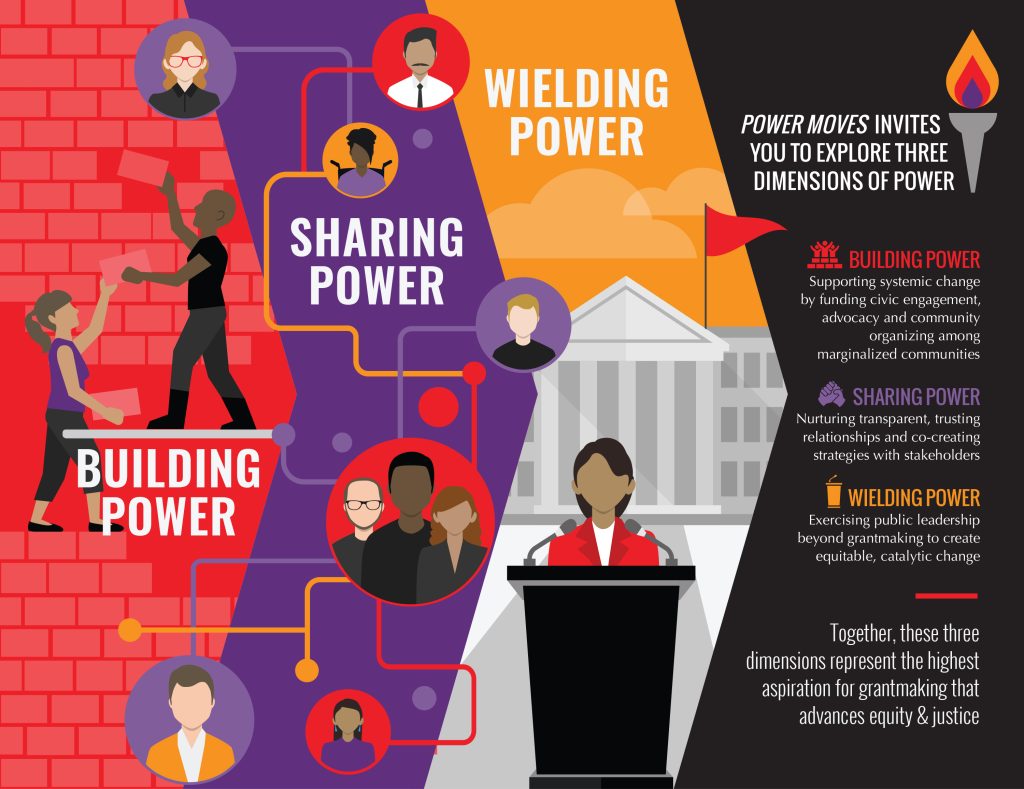Editor’s Note: This blog post is the first in a series of guest features on NCRP’s exciting new resource, Power Moves: Your essential philanthropy assessment guide for equity and justice. Justice Funders graciously served as co-host of an early pilot presentation and roundtable discussion NCRP facilitated on the toolkit in San Francisco in December 2017.
In my first few months as a brand new fundraiser at a grassroots, women of color-led social justice organization, I was tasked with managing a grant proposal submission to a national funder that – in retrospect – was one of the most burdensome and painstaking grant application processes I ever experienced.
Between myself, a grant writing consultant, the executive director and our program staff, we spent nearly 40 hours of time working on a $20,000 request. In the end, they granted us $10,000 without much explanation as to why. The following year, this foundation, which had been supporting our organization for the past decade, made changes to its strategy and decided to stop funding us.
This was my introduction to institutional philanthropy. During the next seven years, I experienced numerous encounters with funders who talked a great talk about advancing racial, gender and economy equity in their grantmaking, but didn’t recognize the ways in which their own power and privilege were undermining their missions. It became clear that the internal practices of foundation staff and the ways they relate to their grantees often perpetuate the systemic inequities they seek to address.
My experience as a fundraiser is what led me to Justice Funders, a small but mighty organization that serves as a partner and guide for philanthropy to re-imagine practices that advance a thriving and just world. I carry those experiences with me as I work alongside my team to boldly call our on colleagues in philanthropy to not only adopt social justice values, but to do the hard work of actually putting those values into practice.
It’s exciting to see that our best known resource, the Choir Book: a framework for social justice philanthropy, has been used by hundreds of foundation staff across the country to align values to practice in every step of their grantmaking process. I feel inspired knowing that 100 percent of the alumni of the Harmony Initiative, our leadership program that equips funders to become a true force for social justice, have been able to integrate at least one equitable practice shift to their grantmaking practice.
For example, Ceres Trust and the Latino Community Foundation no longer request budgets as part of their grant decision-making processes, and Metta Fund reduced its applications process to increase its net grant. (Quick plug: Applications for the Bay Area Harmony cohort close on May 18, and we will be launching Midwest & East Coast cohorts in 2019!)
At the same time, we recognize that grantmaking dollars alone are not enough to manifest the kind of transformation needed to dismantle the multiple systems of oppression that keep our communities from thriving. In this moment of grave social, economic and environmental crises, we are calling on philanthropy to reckon with its century-in-the-making practices that have fueled the accumulation and privatization of wealth, and the centralization of power and control.
In order for our field to take a proactive role in building a world that works for all of us, we need to liberate philanthropy from its constraints by shedding these harmful ways of operating while simultaneously re-imagining a new set of practices that redistribute wealth, democratize power and shift economic control to communities.
Our vision of field-wide philanthropic transformation is informed by the Just Transition principles that build political and economic power to shift from an extractive economy (the accumulation, concentration an enclosure of wealth and power) to a regenerative economy (which seeks ecological restoration, community resilience and social equity).
While it’s easy to feel discouraged and overwhelmed by the massive nature of such a transition, there are tangible, practical shifts that anyone in philanthropy can make to facilitate a Just Transition for our field. NCRP’s Power Moves toolkit is one great resource that I hope will facilitate meaningful conversations about how philanthropic institutions can be more intentional in their exertion of power.
For example, instead of using your endowment to invest in for-profit companies that cause the degradation of our communities and the planet, how about deploying those financial assets to advance your mission? For the Fund for Democratic Communities (F4DC) this means investing in community-based economic development projects like the Renaissance Community Cooperative – a cooperatively owned full service grocery store located in a working class, majority black community – rather than stocks and bonds.
F4DC is one of our many forward-thinking, transformative colleagues that are already practicing a new kind of philanthropy – as documented in our Liberate Philanthropy blog series – that dares to disrupt business-as-usual.
And while we know it will take years – even decades – to truly undergo a Just Transition in philanthropy, there is no doubt that the time is NOW for funders to get on board – rather than getting left behind while upholding the status quo to maintain their wealth, power and privilege.
So what is YOUR power move? Justice is not some lofty aspiration. It is a necessity in order for our communities to thrive, and that means every one of us must make a conscious choice about what to do with the power and privilege we have.
I’m not saying it’s easy. Eight years ago, I would have told you that it’s impossible. But that’s no reason not to do it. So read Power Moves, then call your friends at NCRP for support. You can call us, too. We are here to guide and support you in taking that first step toward philanthropic transformation.
Maria Nakae is the engagement director at Justice Funders, a partner and guide for philanthropy in reimagining practices that advance a thriving and just world. She leads the Bay Area Justice Funders Network – a regional network for learning and action coordinated by Justice Funders. She also curates the Liberate Philanthropy blog series. As a former social justice fundraiser, she has a special passion for mobilizing resources to support the financial sustainability of grassroots social movement organizations advancing racial, economic and gender justice. Follow @JusticeFunders and @NCRP on Twitter, and join the conversation using #PowerMovesEquity!

 A risk-taking funder is a change-making funder. Those who help fledgling, but inventive, nonprofits get off the ground and into the air can markedly increase their social impact. Legal services in particular can be a
A risk-taking funder is a change-making funder. Those who help fledgling, but inventive, nonprofits get off the ground and into the air can markedly increase their social impact. Legal services in particular can be a Every once in a while, if we’re lucky, we get to be part of something truly transformative. Something that has an outsized impact in bending the moral arc of the universe towards justice.
Every once in a while, if we’re lucky, we get to be part of something truly transformative. Something that has an outsized impact in bending the moral arc of the universe towards justice.